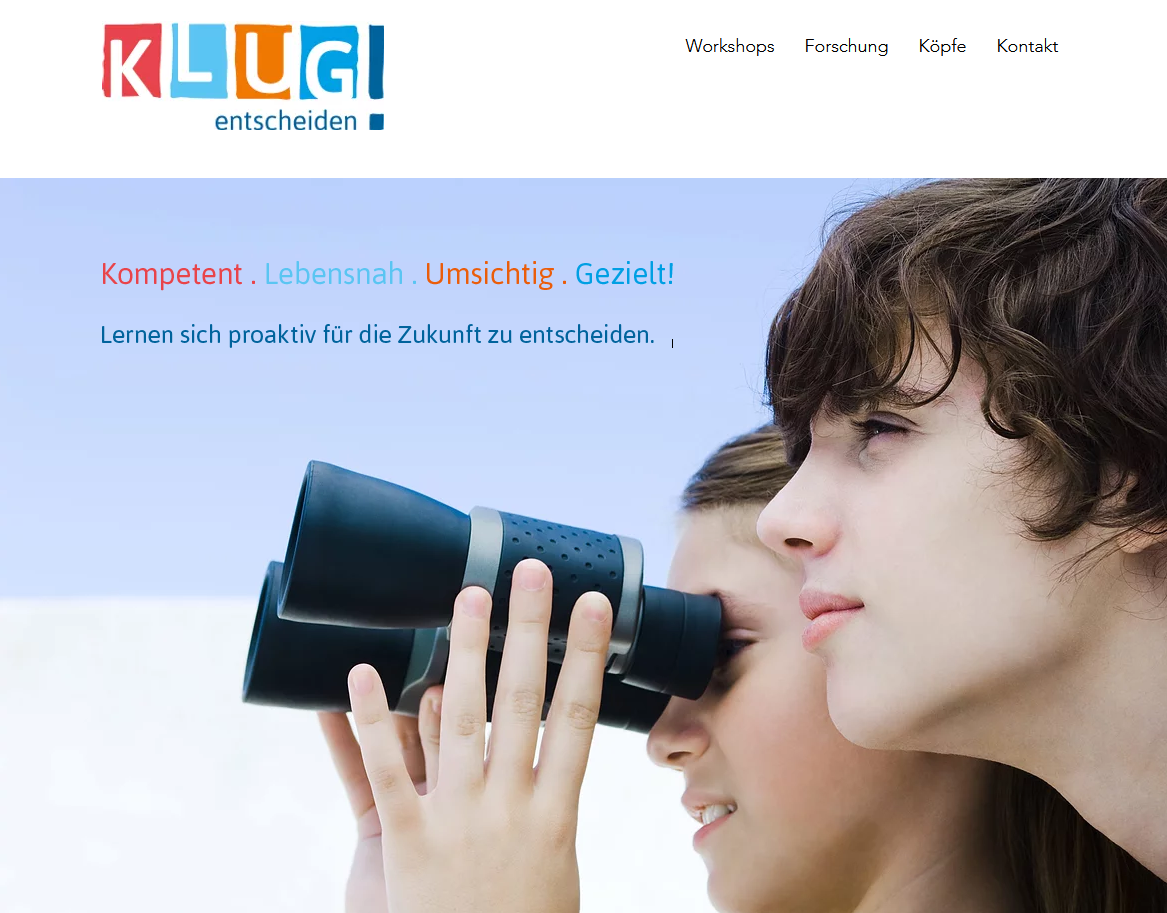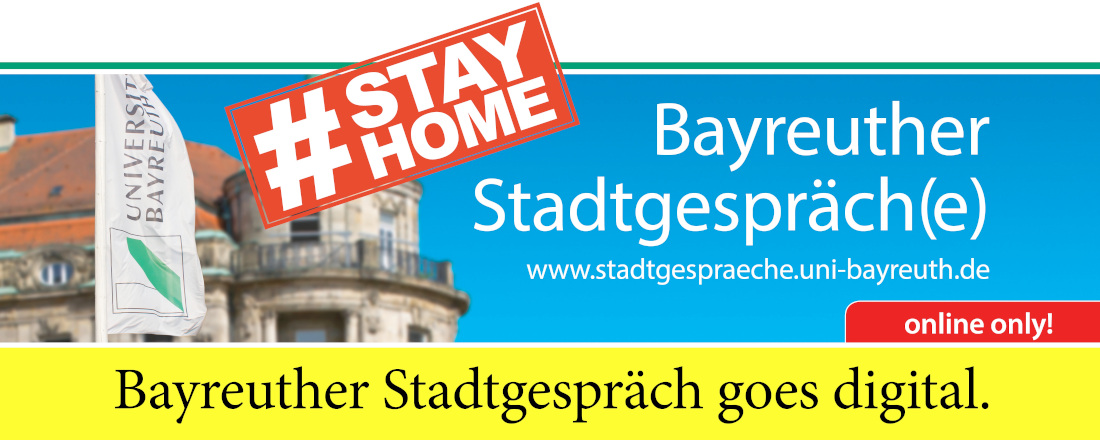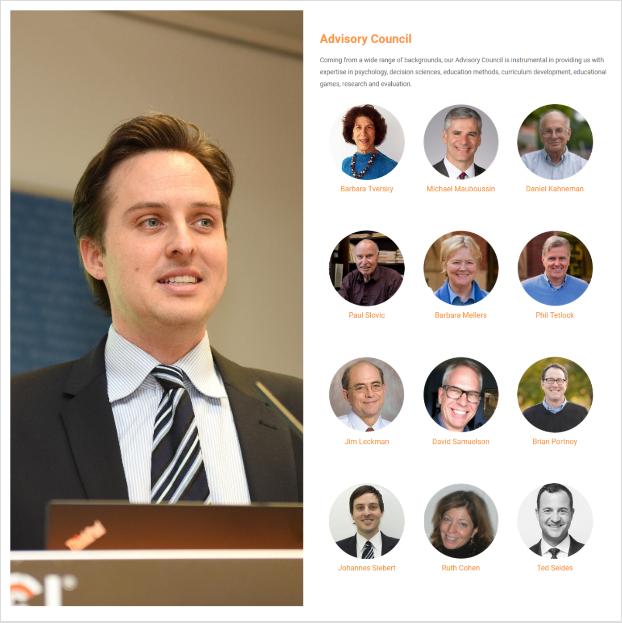Learning to decide wisely and becoming happy: Studies show the effect of training on decision-making behaviour
People who make smart decisions in important private and professional matters increase their chances of greater life satisfaction. The cognitive skills required for this can be significantly honed through training. This is the conclusion reached by researchers at the University of Bayreuth in recent empirical studies published in the European Journal of Operational Research. Courses lasting several weeks with participants of different age and occupational groups demonstrably strengthened their ability to make well-considered choices in difficult decision-making situations.
Improving decision making competence of adolescents
The first decision many young people make is “what do I do after school?” For the most part, different options are presented at best. Often, young people then choose one of the obvious alternatives or alternatives suggested by others without thinking more deeply about what they personally actually want and what their objectives are. For example, you often hear young people say, “My mother is a doctor, so I’m studying medicine,” or “My father is an entrepreneur. I’m studying business,” or even “My parents didn’t study. I should definitely not make the same mistake.” In principle, these decisions may seem “reasonable” from an objective point of view; in individual cases, however, it is urgently necessary to consider each individual’s interests, wishes, and prerequisites. Before choosing a field of study, everyone should ask themselves the central question of whether training or studying is a better fit for a young person’s objectives…
Defining and Aligning Supply Chain Objectives Before, During, and After the COVID-19 Pandemic 3
In order to deal with the COVID-19 pandemic, many companies face numerous strategic decisions of utmost importance for their future. Being aware of one‘s objectives is a prerequisite for sound decision making. However, decision and policymakers are often not aware of their objectives when facing important decisions in “normal” times. In addition, specific objectives have to be identified in times of crisis such as theCOVID-19 pandemic. In this article, we provide guidelines for managers that illustrate the following. (i) How to identify company objectives? (ii) How to align them within their supply chains and with governmental objectives of policy makers? (iii) How to adjust objectives during and after theCOVID-19 pandemic? Furthermore, we suggest comprehensive sets of relevant objectives and propose an iterative process to define, align, and adjust objectives. The study may help practitioners from business and public administration when making decisions and policies. Researchers may be inspired by the…
Prioritization model for the early-stage development pipeline to enable holistic portfolio management for a pharma company
The client was seeking a way to evaluate early development projects that would take an integrated view of the portfolio and enable consistent trade-offs. The solution was a multi-attribute prioritization methodology to enable holistic portfolio management and value-based decision making. The innovative methodology uses multi-attribute utility theory and value-focused thinking within the framework of decision quality, providing a consistent evaluation of various early-stage projects within a heterogeneous set of disease areas, thereby enabling trade-offs based on agreed-to decision criteria.
Give yourself a nudge: How to ‘nudge’ yourself to systematically make better decisions professionally and personally
Decisions are the only way we can actively influence what is important to us or our organization. Everything else ‘happens’. It is therefore surprising that decision-makers leave much potential for improvement untapped. In the September City Talk, numerous tips will be given on how we can systematically make better decisions and thus achieve what is important to us. About it speaks Prof. (FH) PD Dr. habil. Johannes Siebert from the Management Center Innsbruck.
Minimizing the impact of fake news on the real world by debiasing the belief perseverance bias
Fake news is false news stories packaged and published as if they were genuine with the intention to mislead the reader to damage an agency, an entity, or a person or to increase an internet click revenue. During the 2016 US presidential election campaign, fake news became a global phenomenon, in particular, due to the growing use of social media as a source for news. The proliferation of fake news online has been of increased concern to the European Parliament since. However, no agreement on how to tackle this issue has been reached. Debiasing refers to attempts to eliminate or at least reduce biases. Only a few debiasing methods have been introduced for the belief-perseverance and confirmation biases so far. Although it was suggested already in early publications that effective debiasing methods should include a combination of various debiasing techniques, scholars have instead focused on isolated debiasing techniques. Moreover, the…
International recognition for MCI Professor Johannes Siebert
Renowned Alliance for Decision Education around Nobel Laureate Daniel Kahneman and Richard Thaler accepts Johannes Siebert into Advisory Council | Recognition for research achievements in the area of individual and organizational decision behavior. MCI-News 12. August 2020 A high-ranking recognition has recently been announced at the Entrepreneurial School®: Johannes Siebert, Professor at the MCI Department of Business and Management and an internationally recognized expert in the study of individual and organizational decision-making behavior, has been accepted into the top-class advisory board of the renowned Alliance for Decision Education around Nobel Prize winner Daniel Kahneman. With his expertise, he will contribute to helping children and young people learn to make conscious and well-considered decisions away from the usual “try & error”. The inclusion of Johannes Siebert in the Advisory Council of the Alliance for Decision Education will help to further increase the international networking and visibility of the MCI. Workshops on…
Decisions: problems or opportunities? How you can prevent unpleasant decision situations
Veröffentlichung Siebert, Johannes U.; Keeney, Ralph. “Decisions: Problems or Opportunities? How you can prevent unpleasant decision situations”, Scientific Contributions, Wirtschaftswissenschaftliches Studium, June 2020, 49(6), 1-6 Many individuals and organizations face and address decision situations as problems, which are to be solved. However, decisions are the only way to influence actively what is important. This paper differentiates decision problems and decision opportunities and illustrates how proactive, value-focused decision making can create attractive decision opportunities and help reduce the chance of some unwanted decision problems.
Identifying and structuring of the objectives of the terrorist group Islamic State
In summer 2014, the terrorist group Islamic State was one of the most severe threats for the civilian population in the Middle East as well as in the West. The American government did not had a clear strategy how to deal with this new threat. Pres. Obama even admitted this in public (“We don’t yet have a complete strategy” for fighting the Islamic State in Iraq; 28. August 2014, in Washington Post).
Developing methods for identifying, structuring and comparing objectives
Identifying the objectives of a hostile organization whose decision-makers are not interested in cooperation or even contact with them might be dangerous. In such a case, the methods to identify objectives in a cooperative organizations cannot be applied. We developed a method to identify the objectives of a hostile organization using expert interviews and published speeches of their leaders. The method can also be applied in more moderate cases and could find widespread application, for example, to identify a competitor’s objectives. Furthermore, we developed a method to compare the objectives hierarchies of two or more organizations of one organization over time. The identification of such differences is crucial if they have a substantial impact. For example, to ensure the protection of the civilian population in the Middle East, Europe, and the United States concerning attacks by the terrorist group Islamic State it is necessary to identify similarities and differences of the objectives of Al Qaeda and Islamic State. The results can be used to analyze which measures that had been successful and effective against Al Qaeda could be transferred against Islamic State which not.








